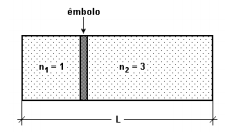Why a global Language?
‘English is the global language.’ – A headline of this kind must have appeared in a thousand newspapers and
magazines in recent years. ‘English Rules’ is an actual example, presenting to the world an uncomplicated scenario
suggesting the universality of the language’s spread and the likelihood of its continuation. (…)
These are the kinds of statement which seem so obvious that most people would give them hardly a second
thought. Of course English is a global language, they would say. You hear it on television spoken by politicians from
all over the world. Wherever you travel, you see English signs and advertisements. Whenever you enter a hotel or
restaurant in a foreign city, they will understand English, and there will be an English menu. (…)
But English is news. The language continues to make news daily in many countries. And the headline isn’t
stating the obvious. For what does it mean, exactly? Is it saying that everyone in the world speaks English? This is
certainly not true, as we shall see. Is it saying, then, that every country in the world recognizes English as an offcial
language? This is not true either. So what does it mean to say that a language is a global language? Why is English
the language which is usually cited in this connection? How did the situation arise? And could it change? Or is it the
case that, once a language becomes a global language, it is there forever?
These are fascinating questions to explore, whether your frst language is English or not. If English is your
mother tongue, you may have mixed feelings about the way English is spreading around the world. You may feel
pride, that your language is the one which has been so successful; but your pride may be tinged with concern, when
you realize that people in other countries may not want to use the language in the same way that you do, and are
changing it to suit themselves. We are all sensitive to the way other people use (it is often said, abuse) ‘our’ language.
Deeply held feelings of ownership begin to be questioned. Indeed, if there is one predictable consequence of a
language becoming a global language, it is that nobody owns it any more. Or rather, everyone who has learned it now owns it – ‘has a share in it’ might be more accurate – and has the right to use it in the way they want. This fact alone
makes many people feel uncomfortable, even vaguely resentful. ‘Look what the Americans have done to English’ is a
not uncommon comment found in the letter-columns of the British press.
But similar comments can be heard in the USA when people encounter the sometimes striking variations in
English which are emerging all over the world. And if English is not your mother tongue, you may still have mixed
feelings about it. You may be strongly motivated to learn it, because you know it will put you in touch with more people
than any other language; but at the same time you know it will take a great deal of effort to master it, and you may
begrudge that effort. Having made progress, you will feel pride in your achievement, and savour the communicative
power you have at your disposal, but may none the less feel that mother-tongue speakers of English have an unfair
advantage over you. (…)
These feelings are natural, and would arise whichever language emerged as a global language. They are
feelings which give rise to fears, whether real or imaginary, and fears lead to conflict. Language is always in the news,
and the nearer a language moves to becoming a global language, the more newsworthy it is. So how does a
language come to achieve global status?
(Source: CRYSTAL, David. English as a global language. 2 ed. United Kingdom: Cambridge University Press, 2003.

